News
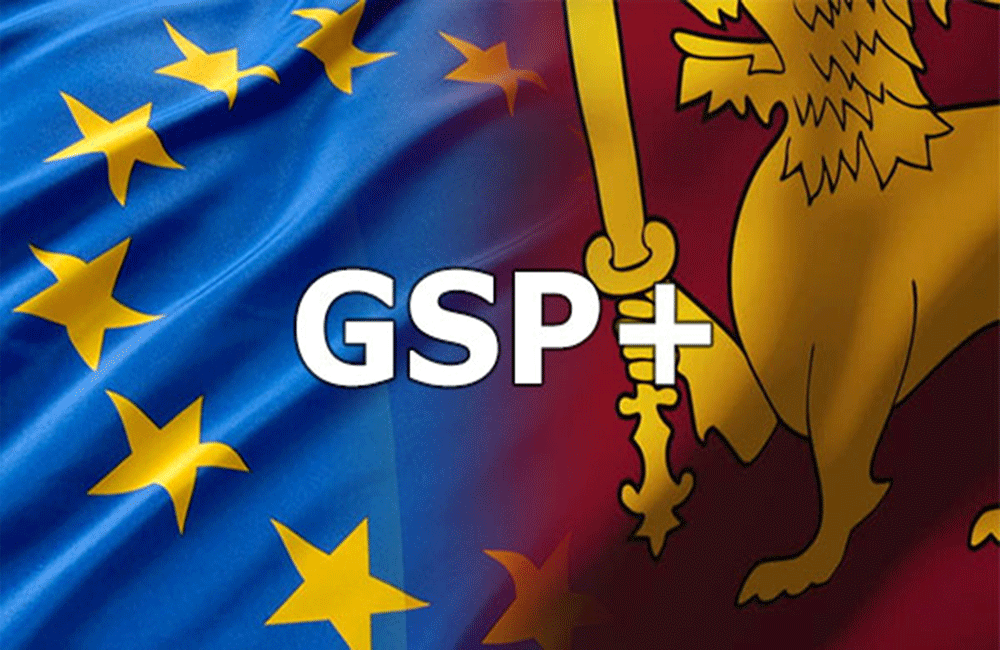
Sri Lanka GSP+ scheme : Update from EU
The European Commission has proposed a 4-year extension to the current GSP+ scheme until December 31, 2027, allowing countries like Sri Lanka continued access to EU markets, it was reported.
According to the Delegation of the European Union to Sri Lanka, the extension has been provided as a result of ongoing negotiations between the co-legislators of the European Union regarding the new GSP+ arrangement.
The move ensures that countries, such as Sri Lanka, do not lose their preferential access in the interim.
The Delegation of the European Union to Sri Lanka further said that the extension of the tariff facility will grant Sri Lanka continued access to the EU markets with the same obligations under 27 international conventions.
“As one of Sri Lanka’s largest trading partners, w/ nearly EUR 3.2 billion worth of Sri Lankan #exports to the EU in 2022 alone, we recognise the importance of GSP+ for Sri Lankan exporters,” it added, taking to Twitter.
The Delegation of the European Union to Sri Lanka added, “ For Sri Lanka, the GSP+ extension proposal means that, for now, nothing changes – same access to EU market and same obligation to comply with the 27 international conventions, which are key to ensuring that #economicrecovery is not just fast, but also #fair, #just, and #green.”
The EU GSP Regulation to be adopted for 2024 – 2033, will be effective from 1 January 2024 for the next 10 years.
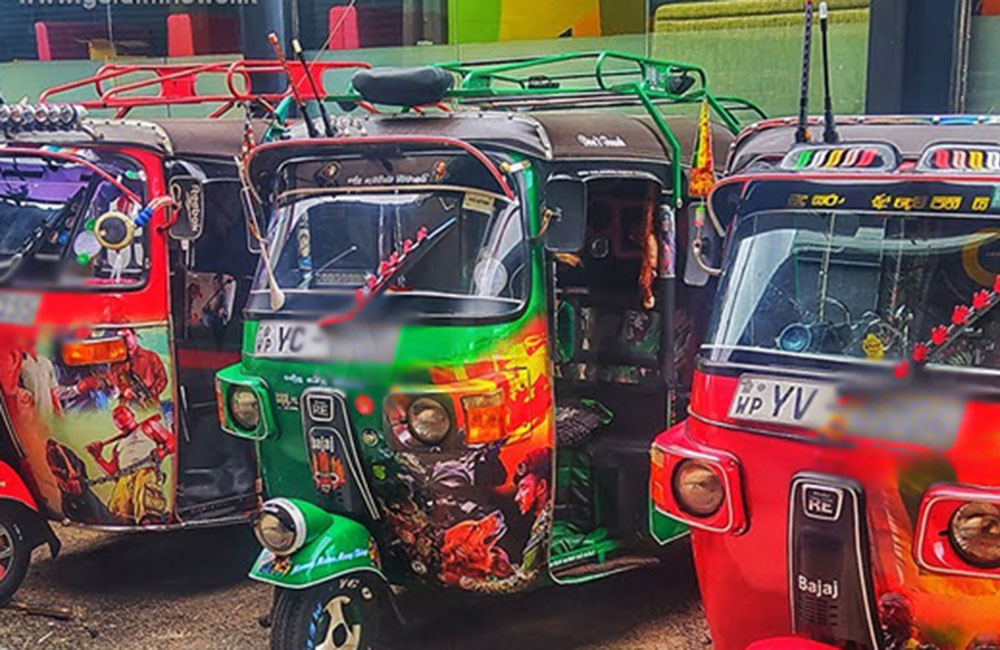
Three-wheelers allowed minor modifications only
Three-wheelers will be allowed to make minor modifications only, said the Department of Motor Traffic.
Its assistant commissioner Sujeewa Tennakoon said three-wheelers modified in such a way that disrupts or harms other vehicles or pavement users will not be allowed to be on the roads.
He said the motor traffic inspector in the respective district secretariat should issue a report approving any modifications.
As much as two million of the estimated eight million vehicles in Sri Lanka are three-wheelers.
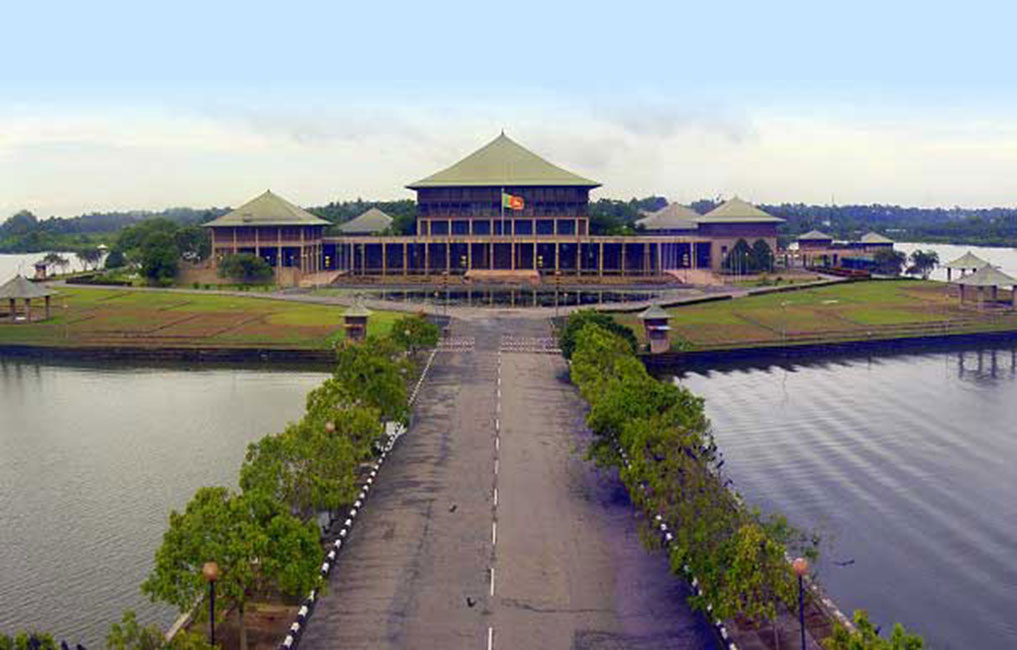
Anti-Corruption Bill passed with amendments
The Anti-Corruption Bill was passed with amendments and without a vote in Parliament today (19).
Amendments proposed by the Minister of Justice and certain amendments proposed by the opposition were incorporated during the Committee Stage of the Bill today.
The Bill was presented to the Parliament by the Minister of Justice, Prisons Affairs and Constitutional Reforms Hon. (Dr.) Wijeyadasa Rajapakshe on April 27, 2023.
The Second Reading debate of the Bill was held on June 21 and July 06, 2023.
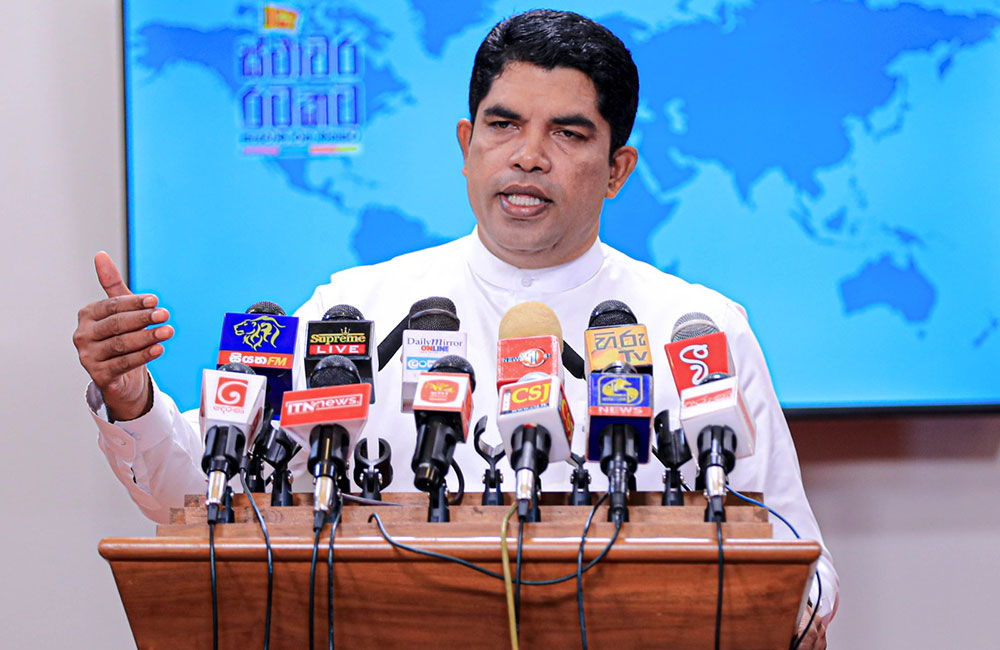
Rs. 10 billion to be spent on modernization of Postal Services
A new Postal Act will be presented to The Parliament within this year to expedite the modernization process of the Postal Department, State Minister of Mass Media Shantha Bandara said at a press briefing held at the Presidential Media Centre today (16).
The State Minister went on to add that the modernization process is planned to be carried out as a joint public-private sector partnership at a cost of Rs.10 billion and assured that the Postal Department will not be privatized at any cost.
He further said that It is expected to convert the Postal Department into a profit-making institution within the next two years, through the digitization of the Department.
The State Minister further said that by the end of 2023, the loss of the Postal Department will be reduced by Rs.4000 million.
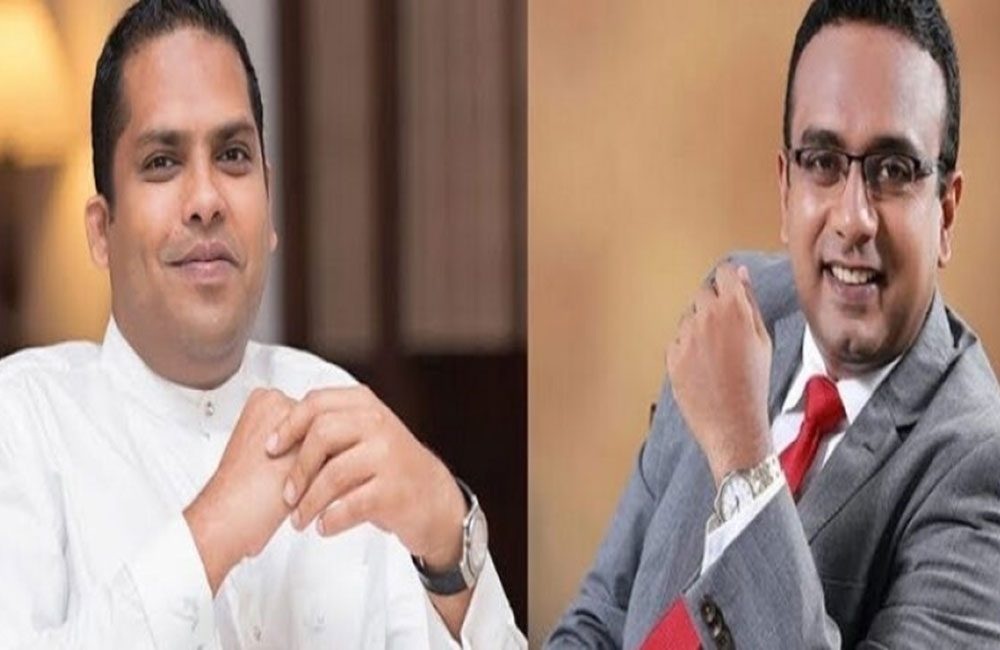
SJB decides to expel Harin and Manusha
The Working Committee of the Samagi Jana Balawegaya (SJB) has decided to expel party members Harin Fernando and Manusha Nanayakkara from the party.
The decision was taken during a meeting of the SJB Working Committee held this evening (18 July).
In May 2022, the SJB had suspended the party membership of the two parliamentarians after they had accepted ministerial portfolios in the government while the party had vowed to take disciplinary action against them.
MPs Harin Fernando and Manusha Nanayakkara were sworn in as the Minister of Tourism & Lands and Minister of Labour & Foreign Employment, respectively.
Fernando and Nanayakkara had said they accepted ministerial portfolios in the government under President Gotabaya Rajapaksa to do their utmost to find solutions to the ongoing economic crisis as a positive response was not received from many political party leaders for a collective effort.
They both subsequently resigned from their ministerial portfolios on July 9, 2022 along with the rest of the Cabinet, after then President Gotabaya Rajapaksa informed the Speaker of Parliament that he intends to resign.
However, they were both reappointed to the same ministerial portfolios by President Ranil Wickremesinghe when he appointed a new Cabinet on July 22, 2022.
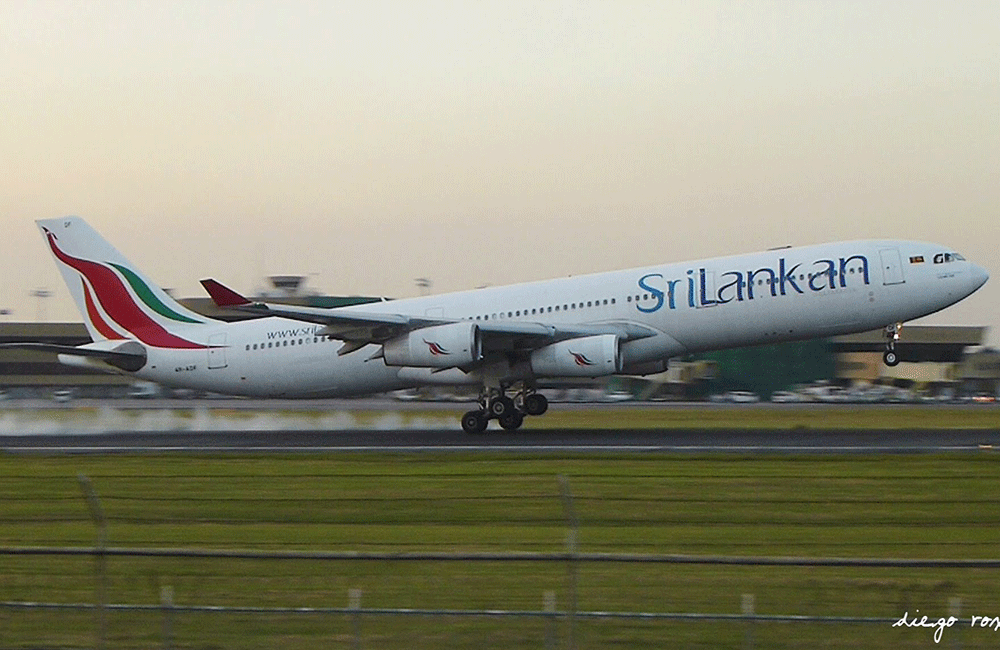
No investor yet for debt-ridden SriLankan Airlines
No investor has so far come forward in response to government plans to privatize the debt-ridden SriLankan Airlines.
Government sources said this has prompted a new plan by the finance ministry for the national carrier to go public with assistance from the World Bank.
SriLankan owes Rs. 316,570 million to state banks, the CPC and other service providers.
It has a 5,600-strong permanent staff, in addition to 500 contract and casual workers.
Some of its departments have a surplus of employees, including 300 managers, while there is a shortage of manpower in certain categories.
In the past three years, 50 pilots had left service with 22 in arrears to meet a requirement of 290.
All of its fleet of 24 aircraft has been obtained on lease, and six of them have been taken out of service due to a non-availability of engines and other spare-parts.
Srilankan has to pay around 700,000 US dollars a month per leased aircraft.
Two aircraft in use for 23 years had been returned.
A voluntary retirement scheme introduced during the coronavirus pandemic has not addressed the surplus segment of employees.
Meanwhile, aviation minister Nimal Siripala de Silva said the carrier will continue with foreign pilots even if all the local pilots leave service.
Speaking to the media, he also said the chosen investor will have the freedom to take administrative decisions during the restructuring.
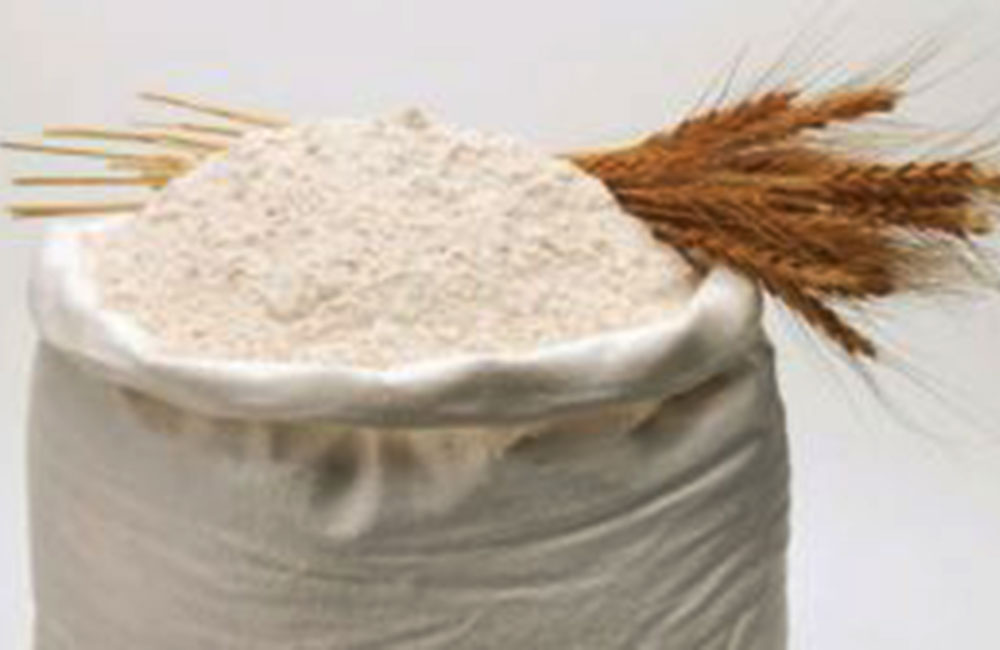
Price of wheat flour reduced by Rs. 10
The price of Serendib and Prima wheat flour has been reduced with effect from today (18 July).
Accordingly, the country’s main wheat flour importers Prima Ceylon (Pvt.) Ltd. and Serendib Flour Mills (Pvt.) Ltd. have reduced prices by Rs. 10 per kilogram, effective from today.
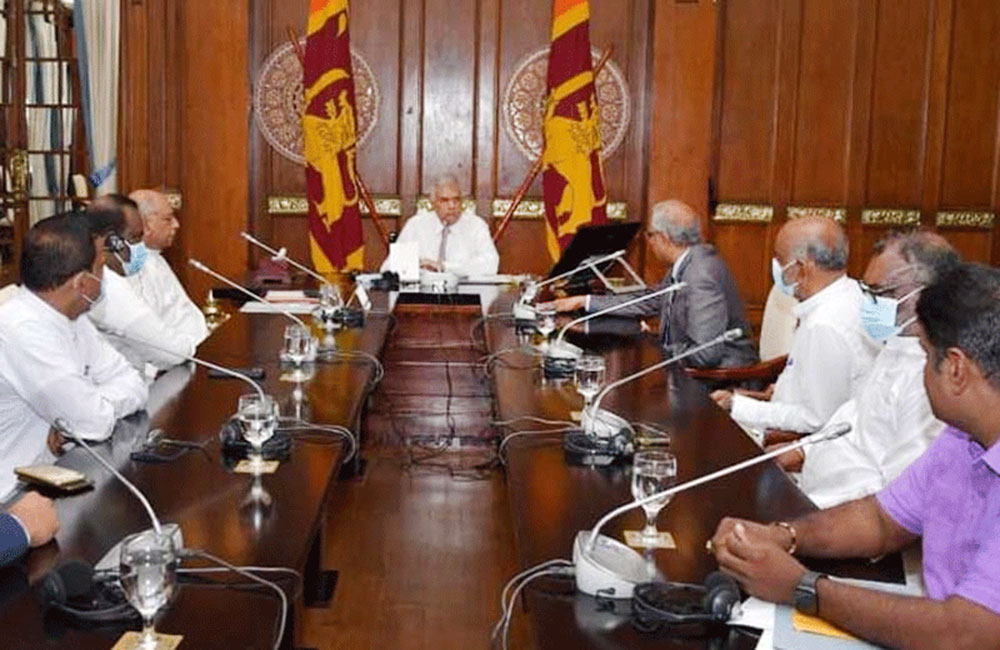
President to meet Tamil MPs prior to India visit
Tamil MPs from the north and the east are due to meet with president Ranil Wickremesinghe on 18 July.
Invitations have been sent out for the meeting that takes place at the parliamentary complex from 3.00 pm.
Government sources said the talks on sociopolitical issues in the two provinces take place prior to president Wickremesinghe’s tour of India.
They include Tamil prisoners, victims of enforced disappearances and land issues.
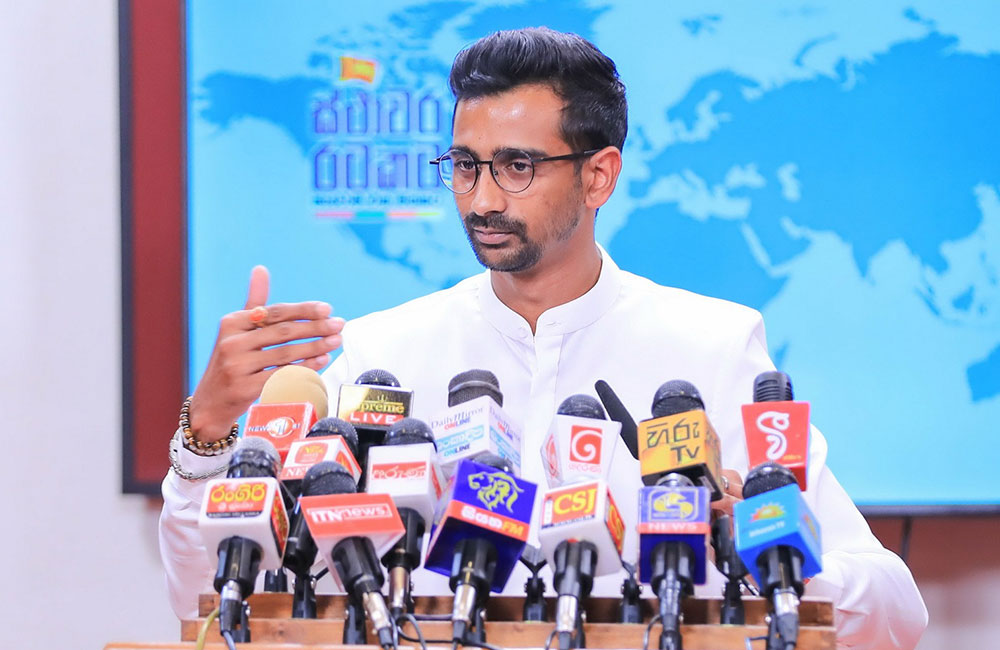
Water tariff increase was necessary to address critical challenges faced by NWSDB – Minister
The National Water Supply and Drainage Board (NWSDB) faced critical challenges, and the increase in water tariff was necessary to solve those challenges and ensure that all Sri Lankans would continue to have access to clean drinking water, Minister of Water Supply and Estate Infrastructure Development Jeevan Thondaman said.
He mentioned that the increase was driven by several factors, including the surge in electricity tariffs, which contribute significantly to the cost of water production, the President’s Media Division (PMD) reported.
Additionally, the burden of debt (due to past capital expenditure to expand water infrastructure), compounded by currency depreciation and interest rate hikes, together with the exponential increase in the cost of raw materials required to treat water, added to the financial strain on the NWSDB, he said.
These circumstances resulted in substantial monthly losses of nearly Rs. 2.8 billion and an annual loss of Rs. 34 billion, hindering the Board’s ability to meet operational expenses, service debts, and maintain the quality of water supply services, the Minister added.
He expressed these views today (18) during a press conference themed ‘Collective Path to a Stable Country’ held at the Presidential Media Centre (PMC), according to the PMD.
Meanwhile, the Minister said that a Cabinet Paper has been passed to commemorate 200 years since upcountry Tamil workers migrated to Sri Lanka from India and who have been contributing to the national economy in various ways since then. On the first week of November, an event will be held in lieu with government’s vision, and it will highlight the community as a whole, he added.
A Presidential Task Force will be formed soon to deal with injustice that happen to the upcountry community. Young individuals comprising of professionals representing different fields, who have been a part of the system have been selected for this Task Force, the Minister further said.
Minister Jeevan Thondaman further commented;
“I understand the concerns and anxieties that may arise regarding the impact of this increase on already struggling families. I would like to provide clarity on the reasons behind this decision and assure you of my commitment to protect the most vulnerable members of our society.
I want to assure you that while the tariff increase is necessary to ensure the sustainability of our water sector, I remain committed to protecting the most vulnerable members of our society. Samurdhi and Tenement consumers, representing the lowest socioeconomic backgrounds, will not see any tariff increases and will therefore continue to receive the necessary subsidies, alleviating any additional financial burden.
Moreover, it is important to note that the proposed tariff increase includes provisions to subsidise low water consumers, schools, hospitals and religious establishments. This measure aims to support those who consume less water, come from economically disadvantaged backgrounds and provide essential social services. The monthly water bills of low water consumers will remain below Rs. 1000 (Rs. 33 a day).
I acknowledge the hardships faced by our citizens, and I empathise with the challenges posed by this tariff increase. However, it is crucial to understand that this decision was made after careful consideration and evaluation of the long-term sustainability of our water sector. Rest assured, we are committed to reviewing the water tariffs in the coming months, introducing a new tariff formula and policy in line with the government’s commitment to our development partners. I will take all necessary steps to bring tariffs down in the next revision, while ensuring the financial viability of the NWSDB.
I want to emphasise that we are actively exploring cost-saving measures within the NWSDB, such as reducing extra workers and adopting advanced technologies to optimise efficiency and streamline operations. Our aim is to deliver efficient and effective water services to everyone while keeping in mind the economic challenges faced by our people.”
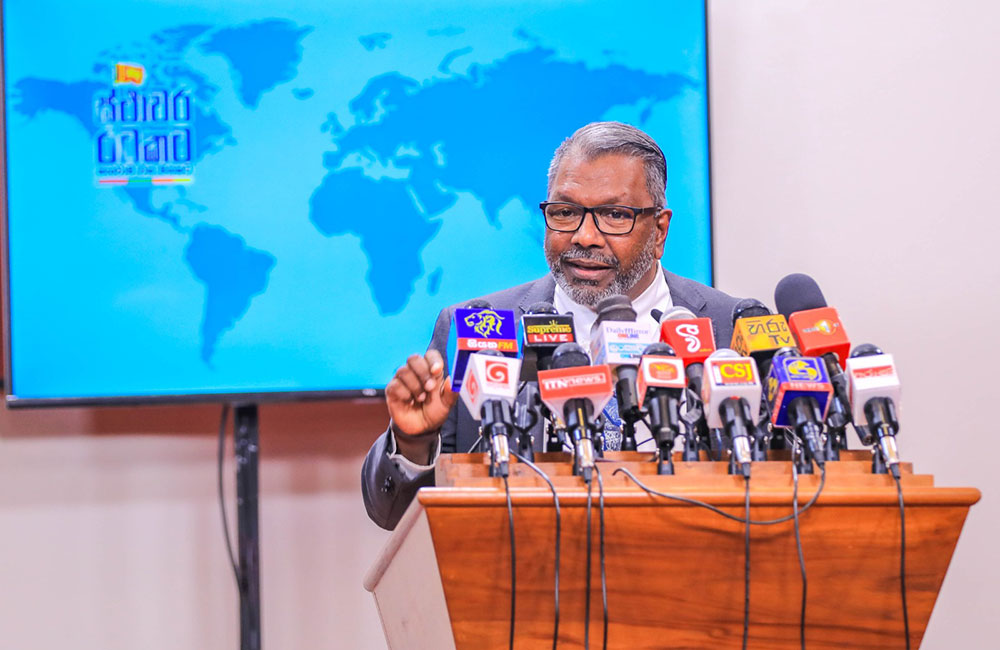
Govt to infuse international standards into Sri Lankan universities
The government aims to create a ‘critical Sri Lankan who is a global citizen in a bid to find answers to the modern and futuristic problems, State Minister of Higher Education Dr. Suren Raghavan says.
Internationalization of the country’s higher education is a top priority of the government, the lawmaker said further, addressing a press conference in Colombo on Friday (July 14). The event themed ‘Collective Path to a Stable Country’ had been organized by the Presidential Media Centre (PMC).
He said the government wants to infuse international standards into local universities in order to make them ‘respected’ higher education institutions in the region, if not in the world, at least by 2030.
In addition, the government also mulls promoting the engagement of overseas Sri Lankan academics in the country’s higher education by allowing them to engage in university lecturing in state universities while on vacation or sabbatical as a measure to encourage their involvement in higher education, the state minister added.
“In this method, we are creating a mechanism so that at least ten Diaspora members will engage in teaching in the 17 government universities in Sri Lanka, which will inculcate their professionalism and experience with our government universities.”
Meanwhile discussions are underway with three prominent international universities to open their branches in Sri Lanka, the state minister added.
“Sri Lanka has always poised to be one of the best hubs for education. South Indian market alone; Kerala, Karnataka, Tamil Nadu, Andhra Pradesh and Telangana is going to have 350 million populations by 2030 and their economy is growing. Where will they go to fulfill their educational needs? It is easy for them to come to Colombo than go to Delhi. We need to look at that market.” Dr. Raghavan said.
Further, the government has held non-regulatory discussions with tuition teachers requesting them to provide their set of recommendations and guidelines to regularize the quality of private tuition education and the safety of students attending these classes, according to the state minister.
“The Advanced Level tuition market is 65 billion. Tuition teachers, parents A/L students are all citizens of this country. So this is a citizen-to-citizen understanding they have to do. Why should the government get involved?” the State Minister said.
Dr. Raghavan also emphasized the importance of understanding the 21st century’s human rights and added that it is the responsibility of the state to provide higher education to every student who wants to pursue higher education.
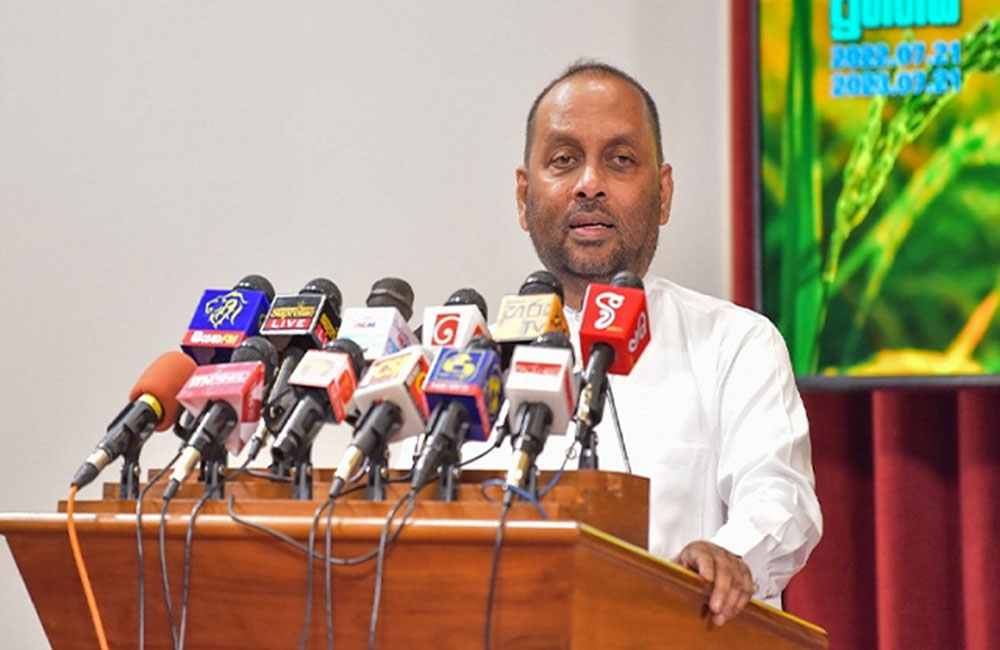
512,000 hectares of paddy fields cultivated in Yala season after 10 years - Minister
As a result of the new fertilizer policy of President Ranil Wickremesinghe, 512,000 hectares of paddy fields were cultivated in the Yala season after 10 years, Minister of Agriculture Mahinda Amaraweera said.
The minister added that 80% of the nation’s agricultural production is expected to be produced by 2025 as part of President Ranil Wickremesinghe’s strategy to modernize the agricultural industry, the President’s Media Division (PMD) said.
The use of contemporary technologies in agriculture can improve production of fruits and vegetables intended for export and reduce the amount of agricultural crops that are imported, Minister Amaraweera added.
He expressed these views today (17) during a press conference themed ‘One Year of Progress’ held at the Presidential Media Centre (PMC), it added.
Minister Mahinda Amaraweera further commented;
Within a year of taking office, President Ranil Wickremesinghe promptly fixed the farmers’ issues and tried to get them back to farming.
Without a doubt, the country’s circumstances were dire when President Ranil Wickremesinghe assumed office and I took over the Ministry of Agriculture. Farmers protested on the roads demanding fertilizer. The youths of the farming families left the farms and moved to other areas.
Some young people even left the country. The biggest issue in this case was guiding them back to the farmland. The public had no confidence in the Ministers. Even at the meetings on this problem, the farmers stayed away.
If they wish to return to the fields, they demand to be provided fertilizer. Although 275 000 hectares were supposed to be cultivated in that Yala season only 212, 000 hectares were cultivated. At that time, President Ranil Wickremesinghe negotiated with the Indian Government and arranged to provide 6,500 metric tons of fertilizer under the Indian loan scheme. However, the Indian loan arrangement does not allow for the provision of fertilizers. The fertilizer was imported from Oman. Only after learning that a ship carrying fertilizer was approaching the Port did the farmers venture back to their fields. This allowed for the cultivation of 512 000 hectares. It is now the most cultivated hectares in the Yala season after ten years.
The farmers arrived back at the farmland in this manner. A global food crisis was anticipated at the time, according to the warnings. Despite considerable success during the Yala season, 800,000 metric tons of rice had to be imported due to the fertilizer issue. The amount of rice that the government had to import was 300 million USD. For animal feed, another 100 million USD was invested. The farmers received fuel and financial aid to carry out the required farming tasks. Additionally, steps were taken to give small-scale farmers a supplementary urea fertilizer subsidy. Money was deposited to farmers’ accounts so they could also purchase organic fertilizers.
The Yala season has now begun. After three seasons, measures were taken to make mud fertilizer available without charge. The newly imported urea fertilizer is offered for Rs. 9000. A voucher of Rs.2000 is issued per one hectare to purchase Bundi fertilizer. The farmers have now received an unexpected subsidy. They did not request for free fertilizer. However, President Ranil Wickremesinghe is of the opinion that more help should be given to improve the status quo.
There is a chance to advance the level of our nation’s agriculture on a global scale. Modern technology is being introduced to agriculture through many means. There may be several difficulties here. However, every effort is made to develop agriculture using contemporary technologies. Numerous individuals, both inside and outside of the political sphere, have criticized these actions. They have alleged that imported fertilizers to be substandard and the harvest to be poor.
There are still plenty of initiatives to dissuade farmers. Despite what they claim, the farmers have returned to their farms. The Agricultural Services Act is currently being amended. In addition to the current subsidies, steps are being taken to provide subsidies in the cultivation of other crops. There are several areas where paddy agriculture is not profitable. The government is ready to help them grow other crops. They have the potential to earn more income by switching to other crops.
The farmers in this country would not only have abandoned their fields if the President had not come into power, but many of them might have also taken their own lives. And we could have become a weak nation due to scarcity of food.
When the President assumed office a year ago, food inflation was nearly 90%. So far, food inflation has decreased to 4.1%. All the farmers of this country deserve the respect and praise of the citizens for being committed to create a renaissance in the country’s agriculture and creating food security in the country. Also, the country has saved 400 USD as the farmers have resumed cultivation.
President Ranil Wickremesinghe gave instructions to establish an Agricultural Modernization Secretariat for the modernization of the agricultural sector in the Presidential Secretariat in parallel to accelerate the country’s sustainable economic growth. The main responsibility of the Agricultural Modernization Secretariat is to solve problems related to various dimensions of modernization, including specific problems affecting various sub-sectors. It envisages preparation of roadmaps for each sub-sector to modernize agriculture with time-bound measures and performance benchmarks.
In order to formally implement this responsibility, the Agricultural Modernization Secretariat has been established by involving all ministries, private sector and universities related to the subject of agriculture. This Agricultural Modernization Secretariat has been operating since May 31 this year based on improving the production and productivity of the agricultural, livestock and animal products sectors using modern technology, increasing the farmer’s income, and increasing the export income.
A national policy framework is currently being prepared under the leadership of Professor Gamini Senanayake of University of Ruhuna as per the instructions of the President in order to get the agricultural sector’s assistance in creating a ‘Developed Sri Lanka’ by the year 2048 through sustainable agricultural development, production of export-oriented agricultural products, assurance of local food security and the transformation of the youth group into ‘Agribusiness Entrepreneurs associated with new technology’. The goal is to have this policy framework completed by the end of August 2023.
The average yield of paddy in this country is about 3.7 metric tons per hectare. A set of farmers from Hambantota have been able to obtain 10.25 metric tons of paddy per hectare by following good agricultural practices and using quality seed materials. Therefore, the primary goal is to double the current average annual yield for paddy by six seasons from 3.7 metric tons to 7.4. metric tons.
Average maize yield in Sri Lanka is about 3.7 metric tons per hectare. By the end of 2026, it is expected to increase it up to 60 metric tons. Steps will be taken to construct high-tech model cultivation plots as pilot projects for both crops and livestock in each province, with the help of the Provincial Council, the line Ministry, the Central Government, private sector and universities.
Secretary of the Ministry of Agriculture Gunadasa Samarasinghe, Director General of Agriculture P. Malathi, Agricultural Services Commissioner General A. H. M. L. Abeyratne, Chairman of Fertilizer Corporation Dr. Jagath Perera, Director of National Fertilizer Secretariat Chandana Lokuhewage were also present, according to the PMD.
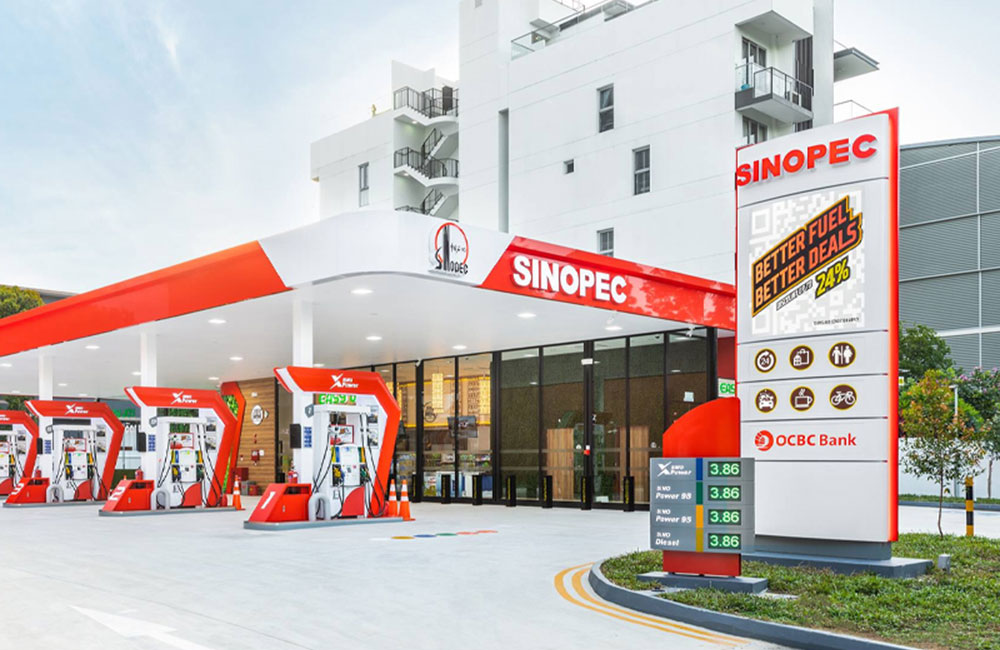
Sinopec commences importation and distribution of fuel in Sri Lanka
State Minister of Investment Promotion Dilum Amunugama says that China's Sinopec Company will commence the importation and distribution of fuel in Sri Lanka on Saturday (15).
The State Minister says that the relevant company is also going to open 50 new fuel stations in the country.
According to the previous agreement between China's Sinopec Company and the Ceylon Petroleum Corporation, the registration under the Board of Investment and the signing of the related agreements were done in Colombo yesterday (14).
Page 261 of 684